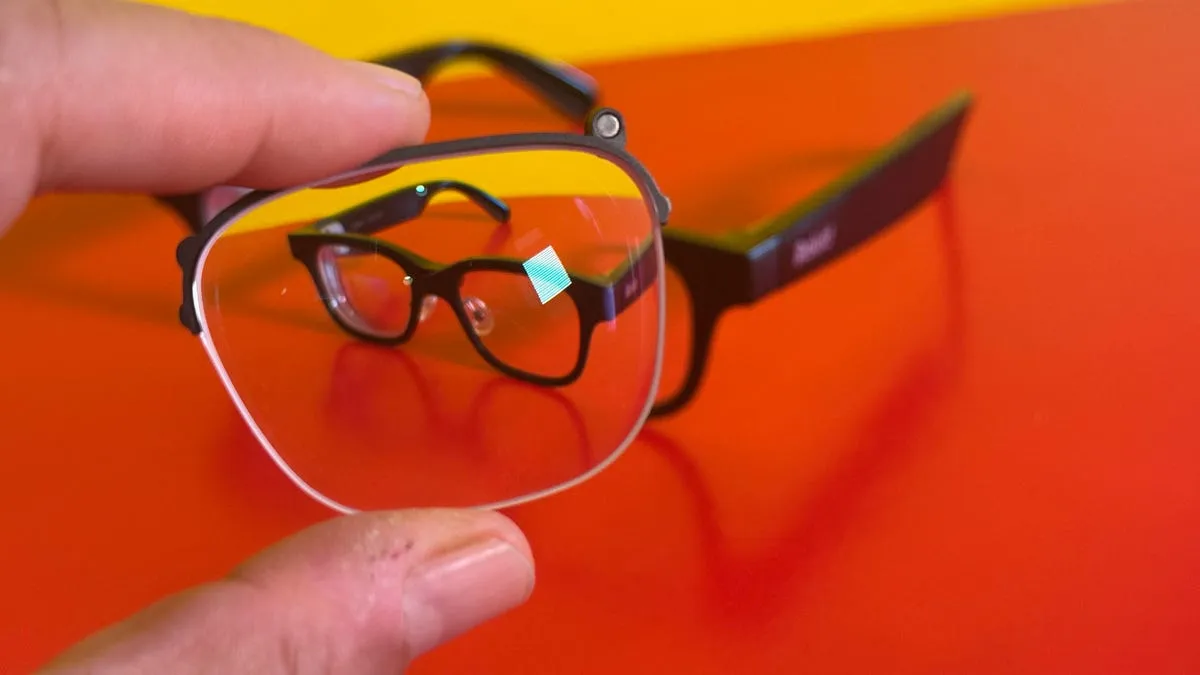
As I sit here typing on my laptop, music plays through my smart glasses, which are designed by the innovative company Rokid. Unlike Meta's recently launched Ray-Ban Display Glasses, the Rokid smart glasses are currently available on Kickstarter for just $479, significantly less than the retail price of $599 set for their official release later this fall. These glasses boast many of the same features as their Meta counterparts, but with a unique twist that addresses a common issue for those with vision problems.
One of the standout features of the Rokid smart glasses is their ability to accommodate prescription lens inserts. Unlike the Meta Ray-Ban Displays, which only support a limited prescription range from -4 to +4, Rokid caters to a wider array of vision needs. As someone with a prescription of -8, I greatly appreciate this thoughtful design. The magnetic lens solution allows me to snap in my custom prescription lenses, making it possible to wear the glasses without the hassle of contacts.
Another clever aspect of the Rokid smart glasses is their magnetic pin charge dongle, which attaches directly to the right arm of the glasses. This allows users to charge the glasses while wearing them or when they're off your face, offering a level of convenience that many smart glasses manufacturers have yet to achieve. While I did notice the glasses becoming warmer during charging, the option to power them without removing them is a feature I wish Meta would consider for their upcoming models, which still require a specialized charging case.
Although the Rokid glasses are compact and similar in size to regular eyewear, they do have some design drawbacks. They don't feel as refined as Meta's offerings. The glasses feature dual monochromatic green micro-LED displays that project information into your field of vision, but they can reflect everyday light, making the display visible to those around you at certain angles. Additionally, the glasses rest at a slightly awkward angle on my face, which may not suit everyone.
Rokid utilizes its own AI service, reportedly based on ChatGPT 5, to enhance user experience. The glasses connect via a dedicated phone app, allowing users to play music, capture photos and videos, and even ask questions. There's also a teleprompter app that displays text directly in front of your eyes, alongside features for live translation. However, the audio quality falls short compared to Meta's glasses, lacking the same loudness and clarity.
While Rokid promises future support for other AI models, Google Maps, and navigation features, these capabilities were not available in the early models I've tested. The glasses require manual control using a side-arm touchpad, contrasting with Meta's more intuitive gesture control system. Additionally, I've encountered connectivity issues with the app, which are less frequent with Meta's devices. Nevertheless, Rokid's innovations signal an exciting direction for smart glasses, showcasing the potential for future advancements in wearable technology.
In summary, the Rokid smart glasses present a unique opportunity for those seeking augmented reality experiences tailored to their vision needs. With their innovative design, prescription lens compatibility, and practical charging solutions, they stand as a promising alternative to Meta's offerings. As the landscape of smart eyewear continues to evolve, it’s clear that there’s room for improvement and creativity. I sincerely hope that Meta considers adding a clip-on insert lens option for their advanced Ray-Ban models in the near future.